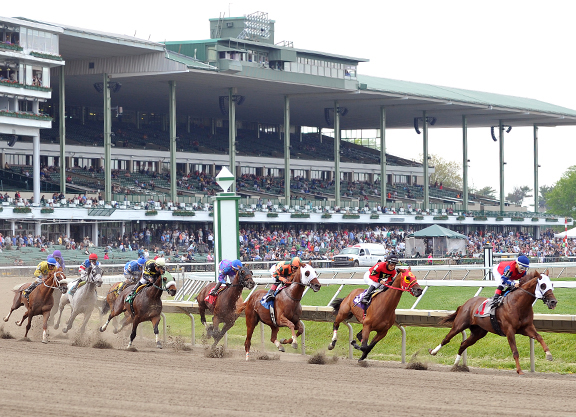By T. D. Thornton
The United States Supreme Court on Monday opted not to get involved in a years-long court dispute over whether the major professional and college sports leagues owe the New Jersey Thoroughbred Horsemen's Association (NJTHA) $150 million in alleged damages.
The Associated Press reported that the case now goes back to a federal court in New Jersey, where a judge will consider evidence from both sides and decide how much the leagues have to pay.
Some $3.4 million in potential damages had been escrowed in 2014 when the four major U.S. pro sports leagues and one college sports regulatory body (NFL, MLB, NBA, NHL and NCAA) first tried to block Monmouth Park's initial attempt at getting sports betting up and running.
Then in May 2018, the Supreme Court struck down the federal law that had prohibited sports betting in all but a few grandfathered states. Soon after, the NJTHA-run Monmouth opened for legalized sports betting.
Yet even though its sports betting operation was finally up and running, the NJTHA never stopped chasing the money that had been placed in escrow
A September 2019 decision by a U.S. Court of Appeals (Third Circuit) panel of judges ruled that because Monmouth had initially been unlawfully subjected to a no-sports-betting injunction for 28 days in 2014 when it first tried to get into the sports betting business, it had been “wrongfully enjoined” because it “had a right all along to do what is was enjoined when the leagues first tried to block sports betting.”
But the NJTHA has claimed in court filings that it is entitled to damages that are actually $150 million, far higher than the amount that had been escrowed. The association's argument is that it got wrongfully shut out of sports betting for four years, not the original four weeks that the escrow period covered.
After that 2019 ruling came out, the leagues fired back, first requesting an “en banc review” into the case. When that was denied, the two sides sparred for several months at the U.S. District Court level. They agreed to halt proceedings until the U.S. Supreme Court decided whether it would hear the writ of certiorari filed by the leagues, which essentially asked for the nation's highest court to reconsider that “wrongfully enjoined” verdict from 2019.
Writs of certiorari filed at the Supreme Court level are rarely granted, and Monday's denial was one of scores of such denials that got entered into the books without so much as a line of explanation from the judges.
Ronald Riccio, an attorney represented the NJTHA, immediately filed a letter dated Monday with the U.S. District Court of New Jersey exercising the group's “right to renew its motion for immediate judgment” of the full amount of the injunction bond, plus interest, and for “partial summary judgment” as to plaintiffs' “liability for damages in excess of bond amount.”
John Brennan, who has been covering the case for New Jersey Online Gambling, wrote that the next step presents “a complex question. The horsemen clearly were improperly prevented from offering what turned out to be a legal product–sports betting–for almost four years. But the leagues will have a case to make that they shouldn't be held liable for the legal errors of multiple judges.”
Not a subscriber? Click here to sign up for the daily PDF or alerts.






